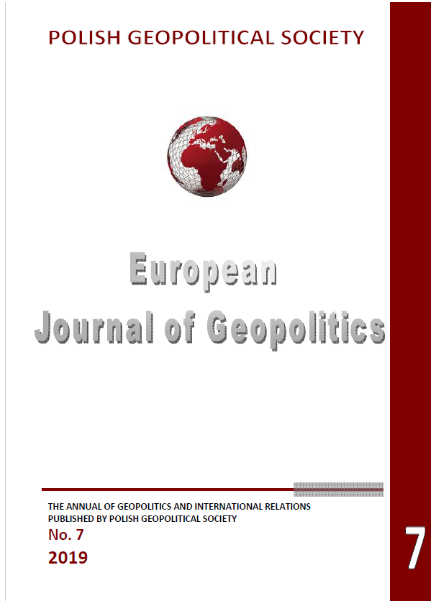THE RISE OF CHINA'S POWER - SECUTORY AND GEOPOLITCAL IMPLICATIONS FOR EAST AND SOUTHEAST ASIA
THE RISE OF CHINA'S POWER - SECUTORY AND GEOPOLITCAL IMPLICATIONS FOR EAST AND SOUTHEAST ASIA
Author(s): Szymon ŁenykSubject(s): Politics / Political Sciences, Politics, Geography, Regional studies, International relations/trade, Security and defense, Military policy, Welfare systems, Geopolitics
Published by: Polskie Towarzystwo Geopolityczne
Keywords: China;EEZ;geopolitics;hedging;East Southeast Asia
Summary/Abstract: In this paper the author tries to explain how the states in the East and Southeast Asia pursue their security strategies in the uncertain geopolitical environment. For the last 40 years China’s GDP has risen in the pace of an average 9,5% per year. This development enabled Beijing to increase its expenditures on the military budget and hegemonical aspirations not only in the region but also in the wider perspective. The enormous economic and military growth let China use more ambitious, assertive or even aggressive policies against its neighbors using intimidation, coercive methods and/or predatory economy practices, especially in the South and East China Sea, imposing so-called 9-dasch-line which interferes into Exclusive Economic Zones (EEZ) of the claimant states. In the light of the ambiguous United States policy under the current administration towards its allies and the other East and Southeast Asia States, these vulnerable countries seek to minimalize the threats and uncertainties of new geopolitics by pursuing optimal security strategies. The author presents that the most attractive strategy, which is within bandwagoning – balancing spectrum, is hedging, which allows the states to improve their competitiveness while at the same time avoiding direct confrontation with main contenders.
Journal: European Journal of Geopolitics
- Issue Year: 2019
- Issue No: 7
- Page Range: 5-33
- Page Count: 29
- Language: English

